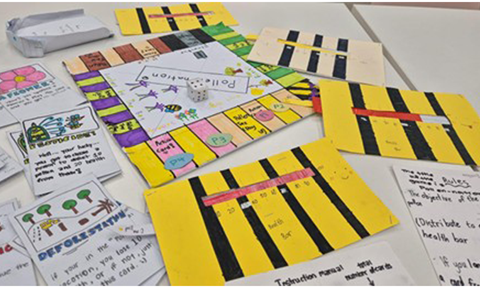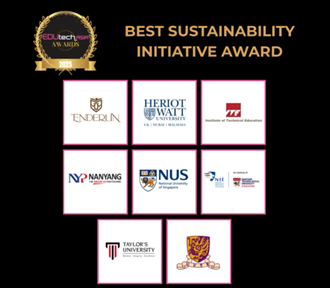Professor Tamar Kushnir and Dr Adam Privitera share at the Strategic Growth Area Science of Learning Seminar Series
On 27 January 2025, The Science of Learning in Education Centre (SoLEC) invited Professor Tamar Kushnir from the Department of Psychology & Neuroscience at Duke University, and the Director of the Early Childhood Cognition Laboratory, as part of the monthly Strategic Growth Area Science of Learning (SGA SoL) seminar series.
In her talk titled “Rational Statistical Learning in A Social World”, she suggested how children are equipped with the cognitive and computational tools to navigate and make meaning from actions observed from Human Actions. Prof Kushnir also showed examples from studies where children combine their prior beliefs and statistical evidence to learn about friendship preferences, social norms, and own social motivations. She ended on how rational social learning leads to both universality and diversity in children’s emerging understanding of the social world.
_lek-hong-teo.jpg?sfvrsn=60d18411_1)
_lek-hong-teo.jpg?sfvrsn=1f444033_1)
On 26 February 2025, Dr Adam John Privitera, Education Research Scientist at the Science of Learning in Education Centre (SoLEC), gave a talk titled, “Bilingual Effects on Cognitive Control: Are We Looking in the Right Place?”. Dr Adam’s presented on the cognitive effects of bilingualism, particularly its impact on cognitive control, brain structure, and executive function. He did his research study in China and the results challenges traditional views by highlighting the different dimensions of bilingual experience - such as proficiency, immersion, and dominance and how it could potentially shape cognitive outcomes.
The findings suggested that bilingualism enhances cognitive control, particularly in monitoring and executive functioning, but these effects vary by the various context. He also discussed and shared potential methodological improvements, advocating for nuanced analysis rather than simple categorical comparisons. The implications extend to education policy, cognitive reserve in aging, and academic performance, thereby reinforcing the importance of bilingual education and further research into cognitive learning mechanisms. Future research endeavors are promising as more can be explored about the potential of increasing cognitive reserves in our brain through learning another language (being bilingual). Additionally, being bilingual could impact other domains of the brain, including academic performance and a person’s inhibitory control. In this sense, policies can be made that promote bilingual education with its health benefits and support healthy ageing.

_shi-qing-steffi-kong.jpg?sfvrsn=467cf460_1)
_shi-qing-steffi-kong.jpg?sfvrsn=b87e563f_1)



.tmb-listing.jpg?Culture=en&sfvrsn=60db54e_1)


